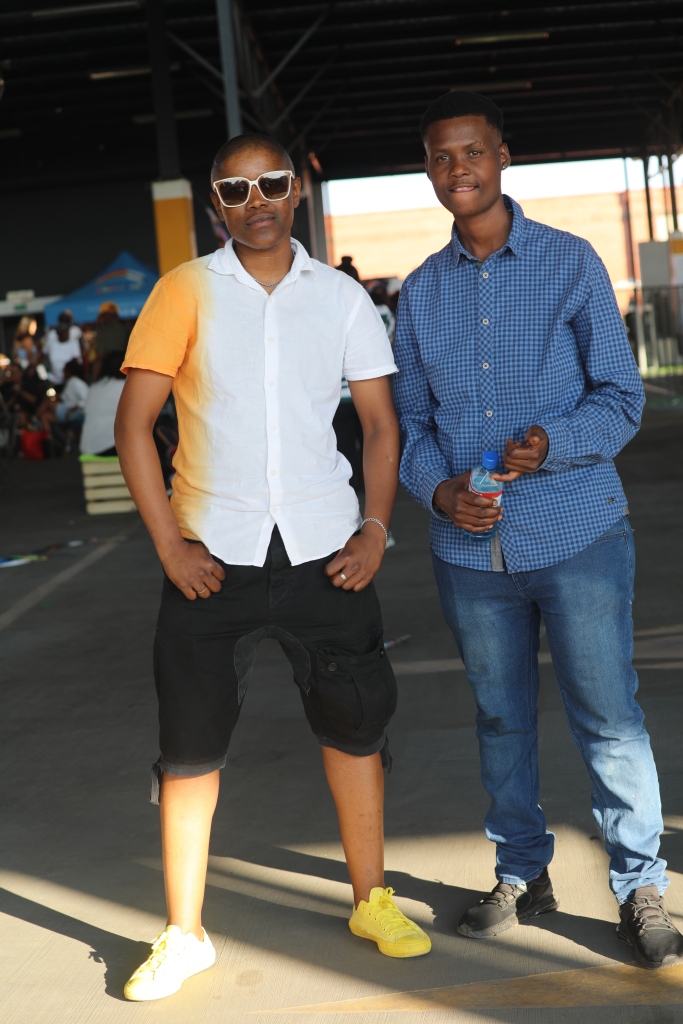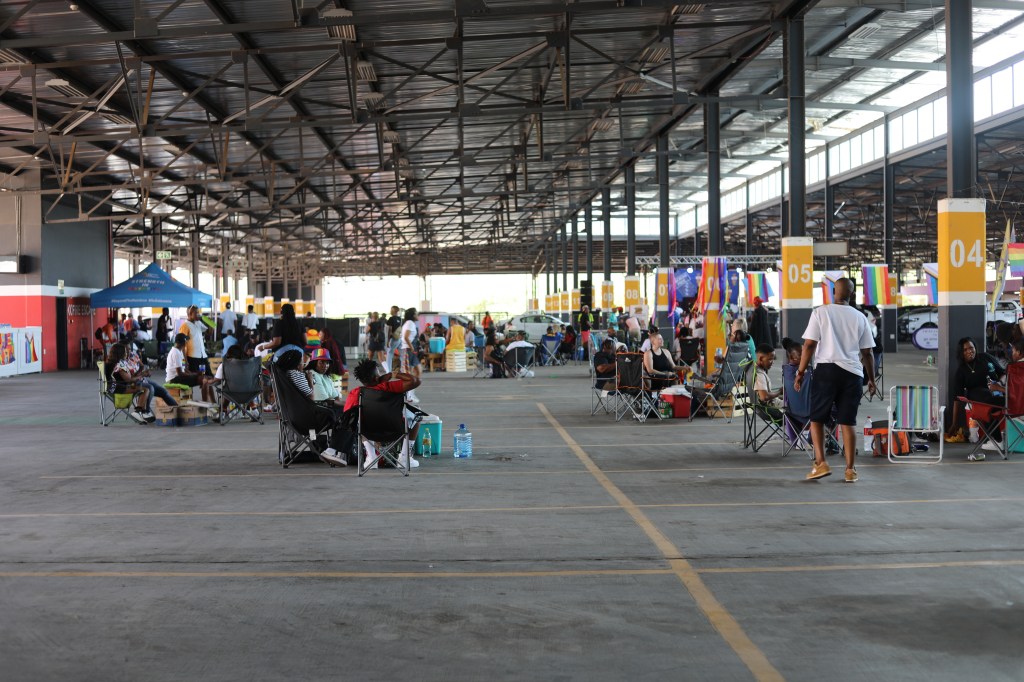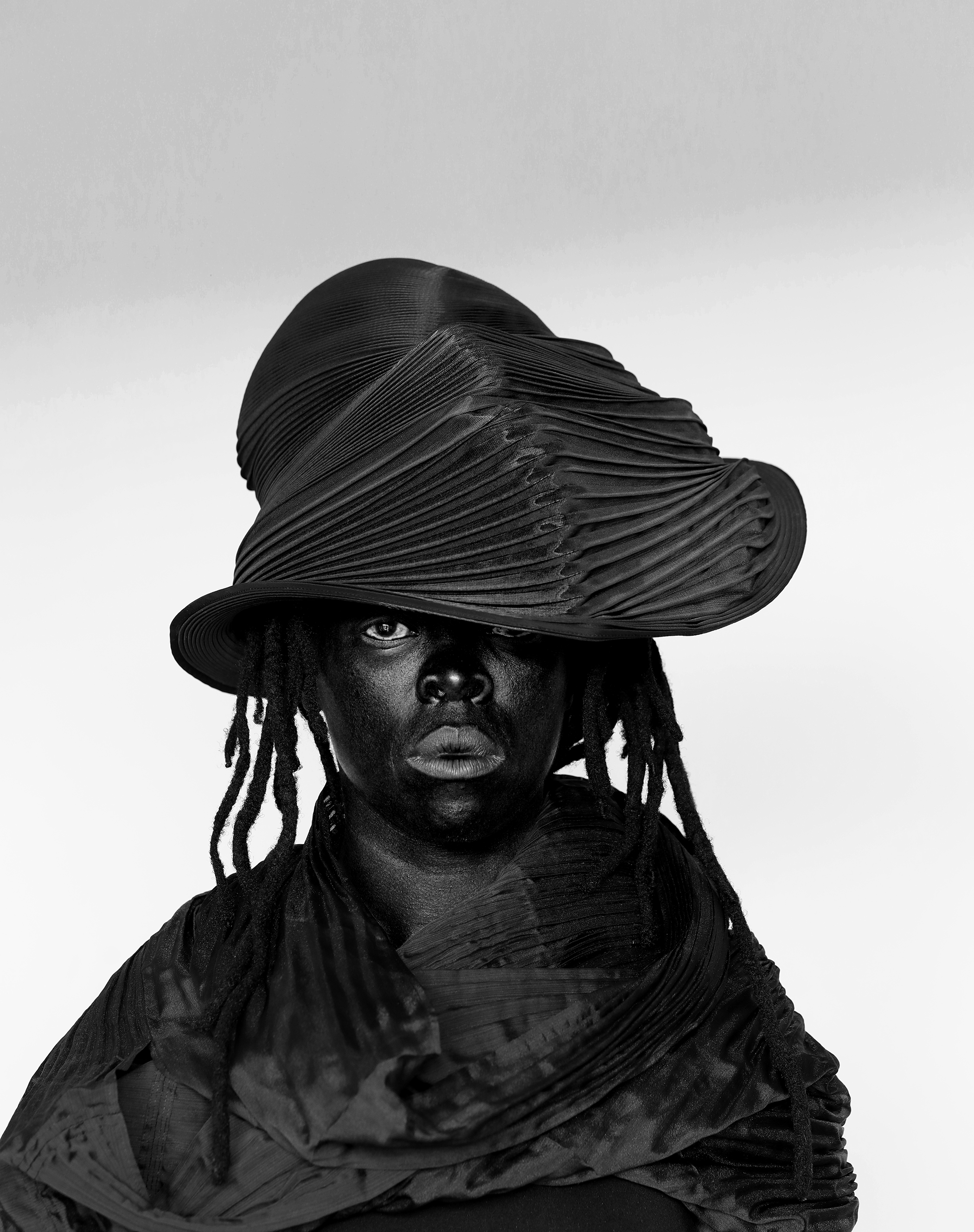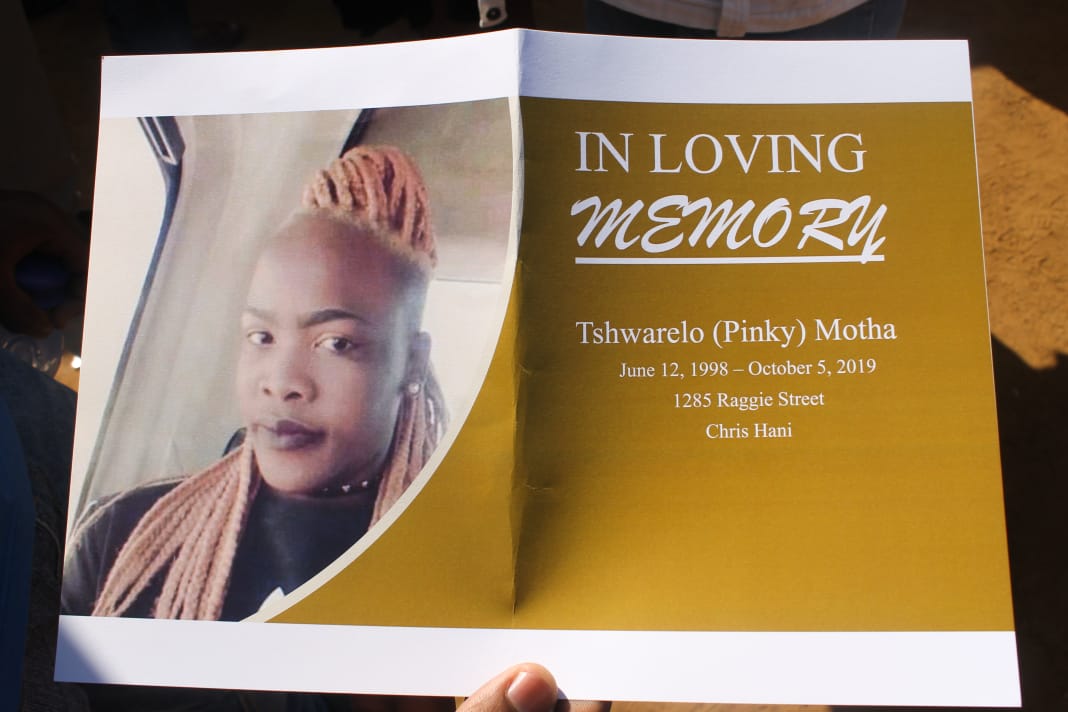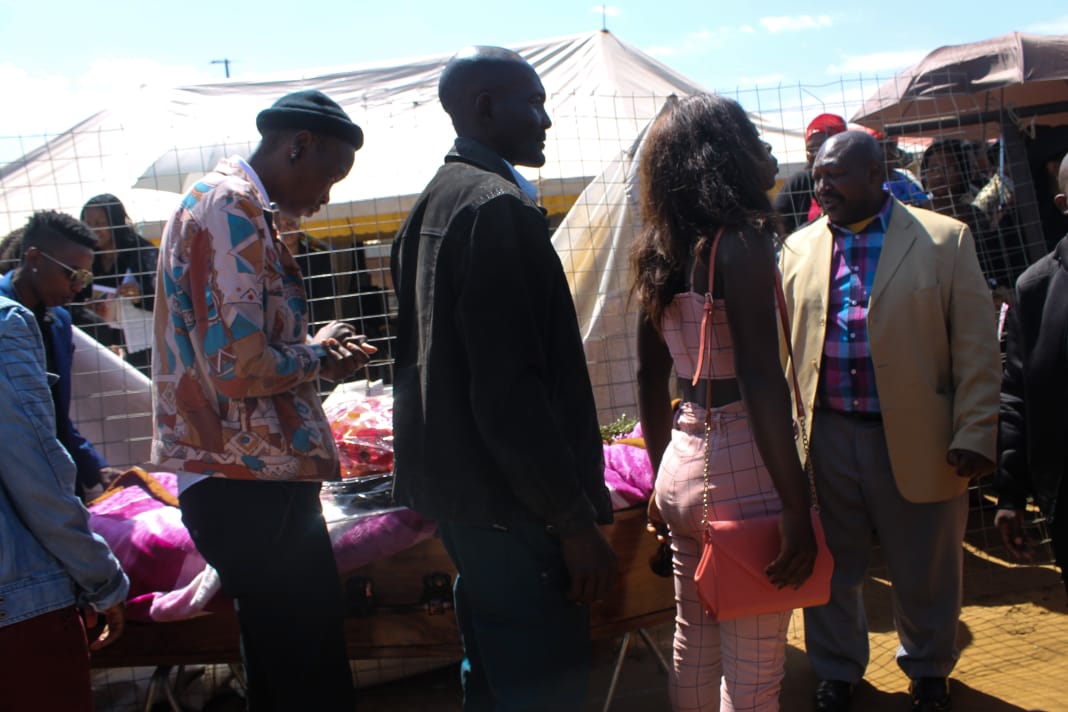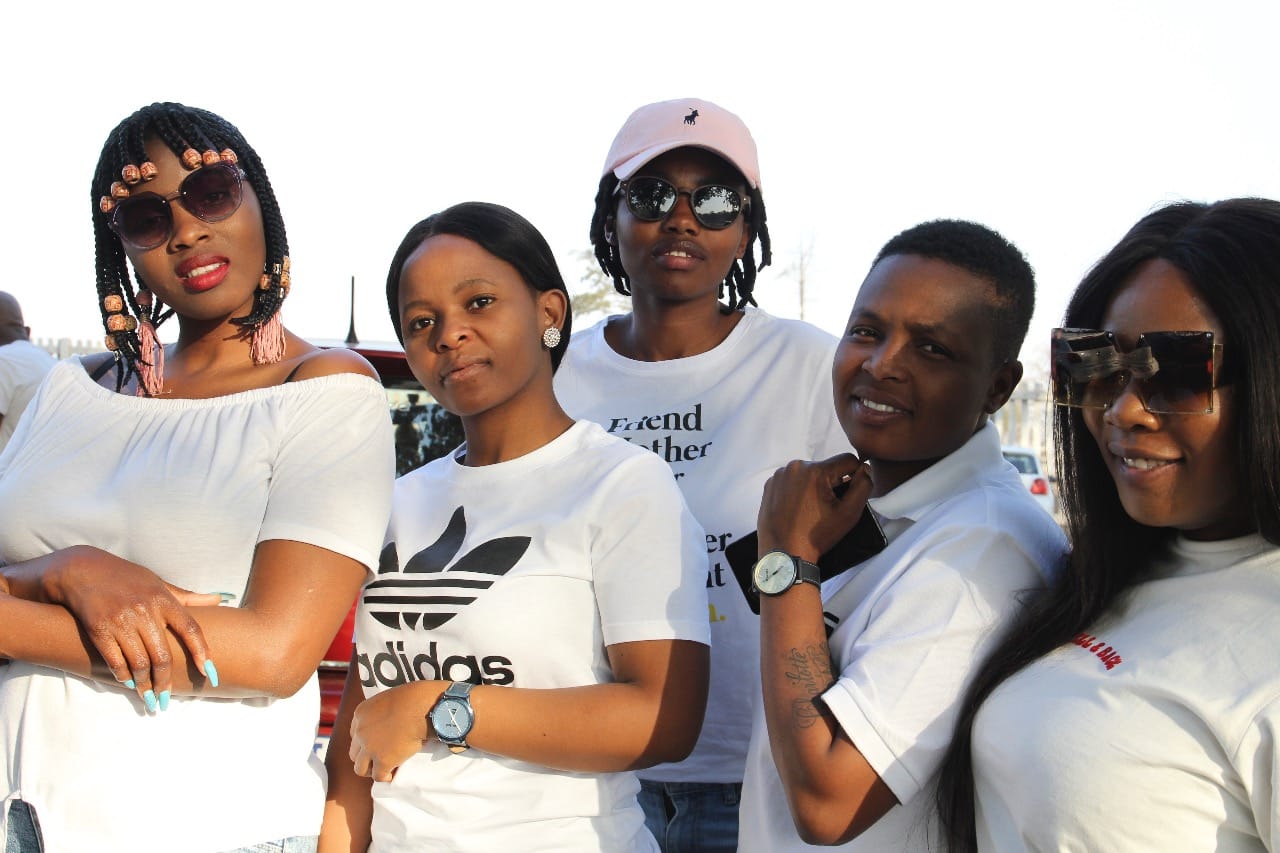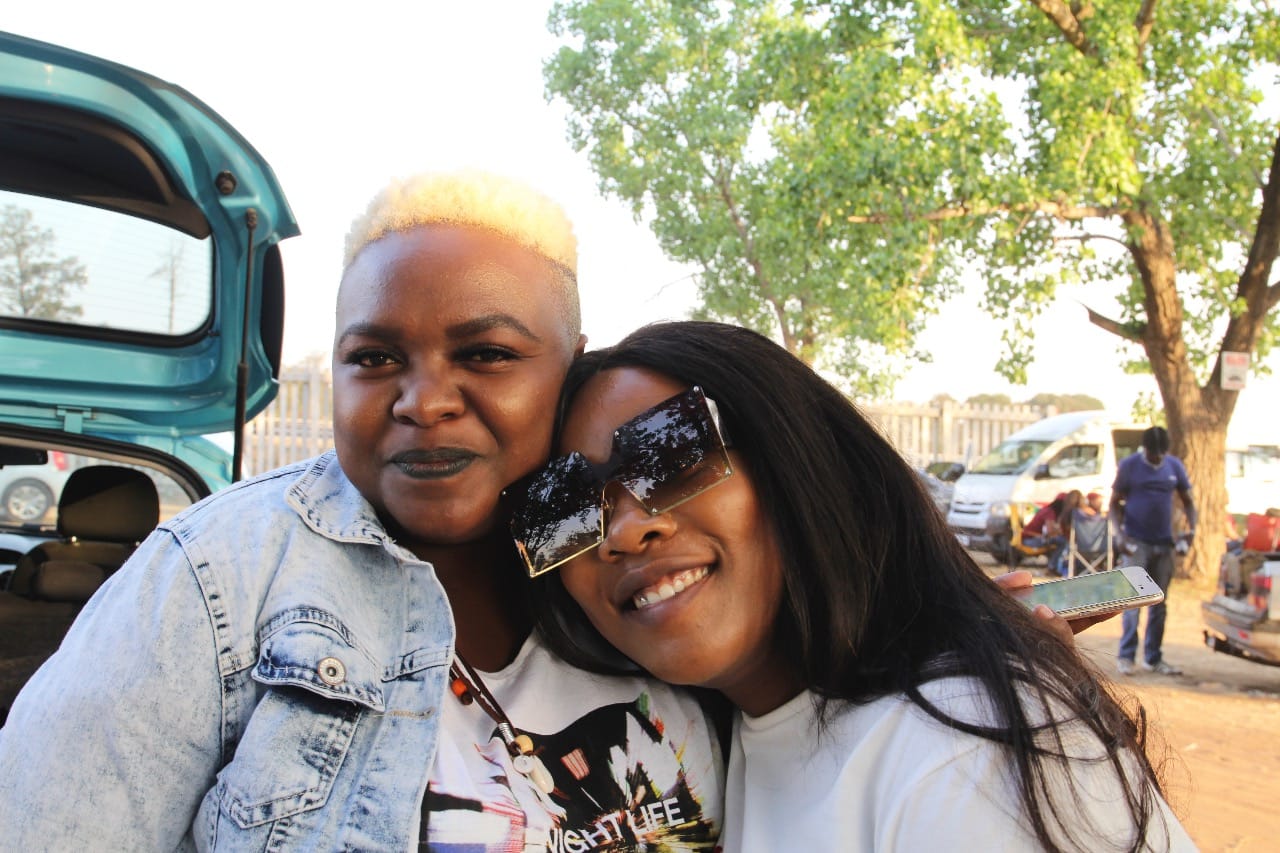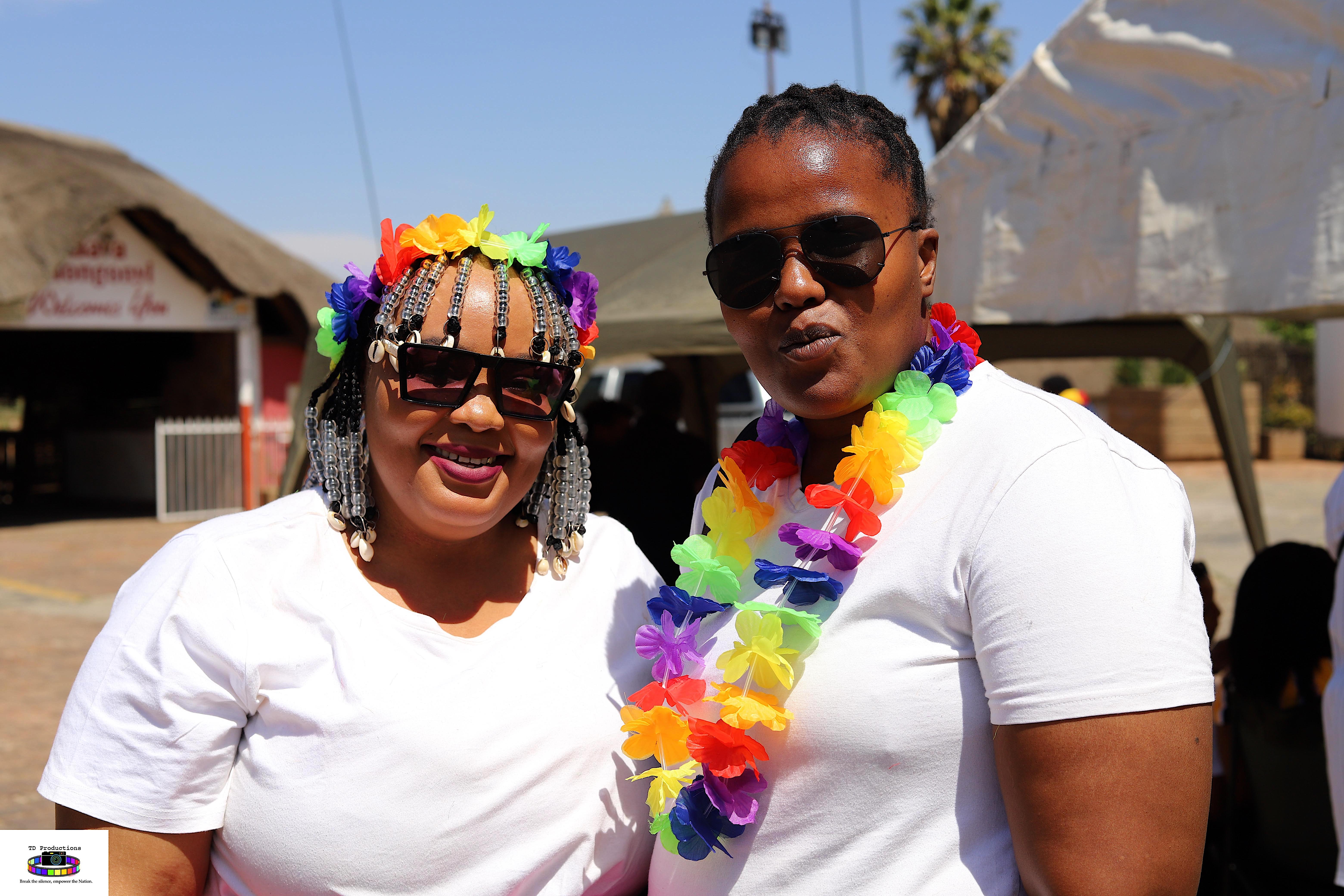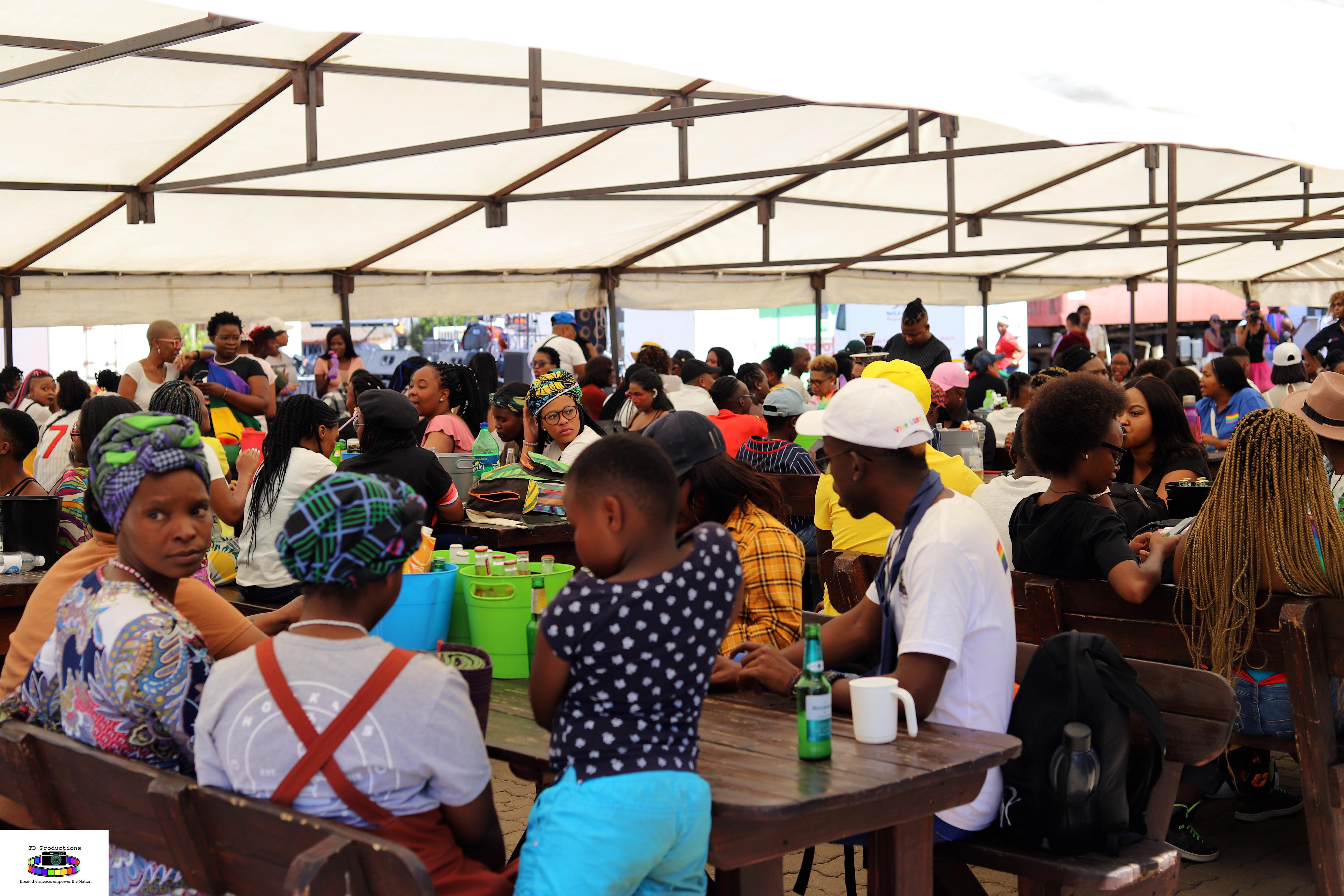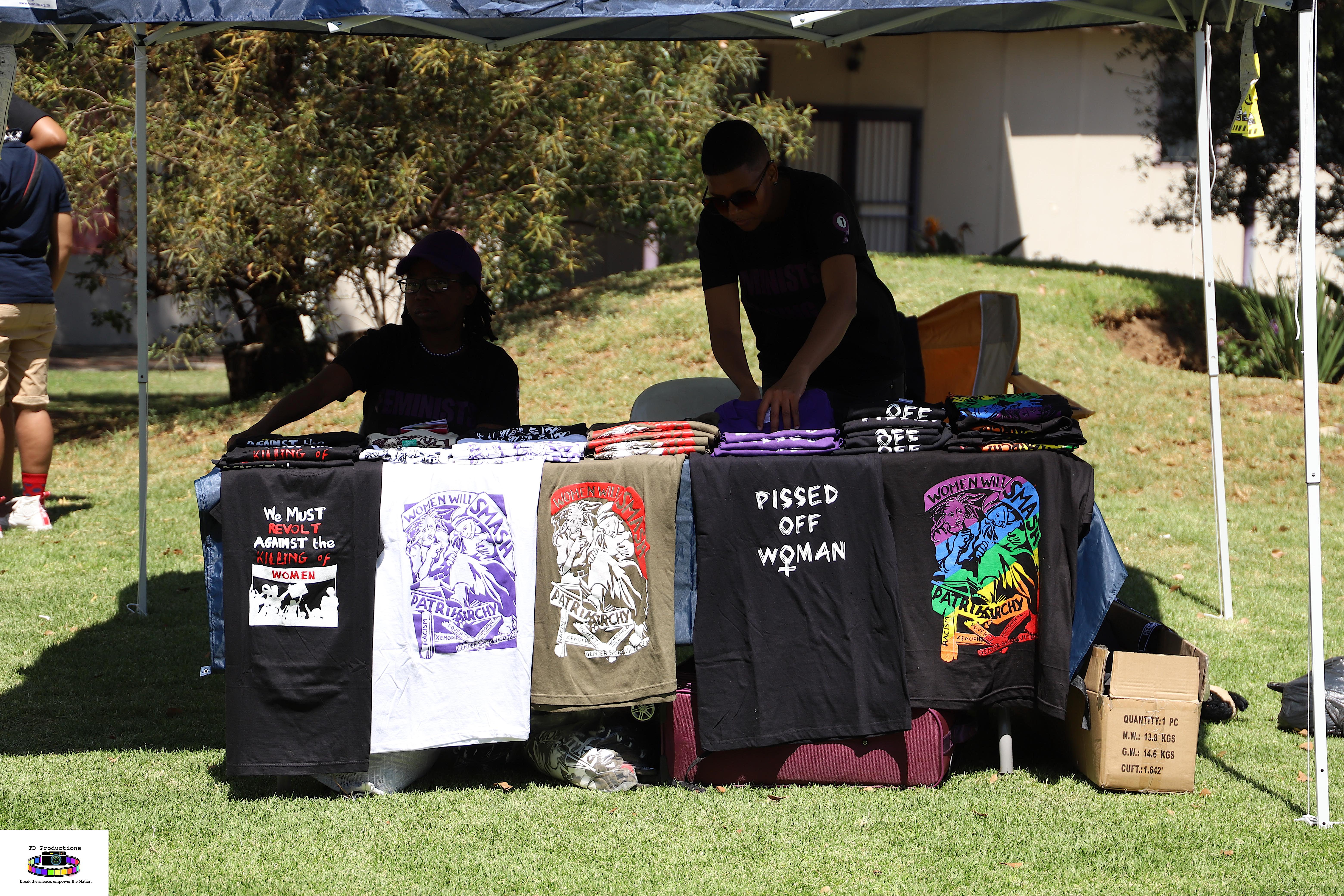My taste of iconism in Paris with Zanele Muholi
“I am not free while any women is unfree, even when her shackles are different from my own.” Audre Lorde
After a self-imposed hiatus of three years, a strenuous quarantine and catching COVID-19 twice, I received incredible news on the 11th of January 2023 from one of South Africa’s visionary and most hardworking visual activists in the art world, Sir/Professor Zanele Muholi.
Prof Muholi: “Good Morning, Unjani? Please call me urgently. I have an exhibition opening in Paris next month. Could you please come with us? Thanking you in advance.”
I respond “Morning, I’m good thanks. I would love to come to Paris with you. Can you brief me more regarding dates and everything.”
Three weeks later after confirming in detail what, why, when and how, my VISA arrives, finalising the thought that this manifestation I wrote in my notebook at the beginning of January is happening in real time.
“Go grab a cup of coffee and enjoy.” Says Muholi after receiving a picture of my VISA, confirming that I’ll be joining them in Paris.
10:55am, Friday, 21 April – I request my Uber to O.R. Tambo international airport, the driver’s in a good mood. I’m hyperventilating because I’m going to Paris for the very first time with one of the most prolific visual artists of our time. I’m trying to remain calm. This is my first passport stamp, as a small town girl from a mining town west of Joburg and the impact of how far I’ve come is not lost on me. My mother passed away when I was 18, it was the middle of the year. God knows, this is definitely something I would like to share with her, to see the smile on her face and joy at the thought of me travelling abroad for the first time. The woman at the check in looks at me with a wide smile on her face and asks me; “So where are you going?” I respond with “Ke ya Paris.” (I’m heading to Paris).For a split second there was a glimpse of excitement in her eyes, she looked at me, smiled, checked my passport and wished me well on my journey. I reciprocate the energy and give her a warm “thank you.”
Ethiopia welcomes me with an airport official asking that I take my Zara sneakers off and walk in barefoot, ok! I’ll be at Bole Airport in Addis Ababa for 2 hours and in that two hours I take a brief walk around the airport. As I step into one of the restaurants it really hits me that I am not in South Africa anymore. The difference in currency ,for one, is a cold reality that’s dawning on me as I check prices. Mntase, I am not elite in Addis Ababa according to the Rand-Dollar-Euro exchange, I’m a citizen of ‘calculate your every move’.
08:40PM – Looking at the poorly fabricated Masonite, wooden walls that separate the stores, prayer rooms, toilets, even the smoker’s section that are haphazardly next to each other I’m a little saddened to think that as an African I’m just passing through heading for what seems to be much greener pastures. Surely Haile Selassie would weep at this sight. After parting with 16 euros (R320) at Burger King with not a single coke nor chip on the side, I begrudgingly eat my food, charge my phone and then proceeded to check in to my Paris flight.
At Charles de Gaulle Airport in Paris, I arrive to what feels like the inside of Home Affairs in Johannesburg CBD, the queues are endless. When I have to catch a train at Terminal 2E portes just to get to baggage claim, I realise just how large CDG is. This must be where the concept of first world problems starts, I’d better get used to it.
I catch a taxi to where Carole Kvasnevski, a black female gallery owner (a unicorn basically) is waiting for me.
09:55AM, 22 April, Paris Carole and I sit down and have a coffee before we go about our day to get me acquainted with the city of Paris. Carole explains her journey to me, twenty years ago she taught young children art in Paris, she’s lived here since she was 10 years old. She says being a black female gallery owner is challenging too, however, she was born and bred in Cameroon and nothing can defy her strength. Carole, on one hand has the smile of a young endearing child but the fierce eyes of a lion ready to pounce at any moment. A creature of note. She is leaving the next day to go see her family in Cameroon. I enjoy her company she is a kindred spirit.
My first lesson on Paris Culture: If it’s not baked, served in a tiny portion on an equally small round table then it’s not Parisian. I repeat, if it’s not made with dough forget about it. The level of indulgence for bread in Paris is surprising to me, the way they take pride in eating it you’d swear it was pap and braai’ed meat kwa Mai Mai.
Le Marais, where I’ll be staying for the next 9 days, is the epicentre of lifestyle where coffee shops, boutique stores, the young, the old and the incredibly stylish converge. I’m astonished to walk past what Carole says is a strike against some labour law, the strikers may as well have been at a concert, there’s a stage, people taking turns to speak to rounds of applause with music to end the occasion off. The streets of Paris are alive well past midnight, we never have to worry about walking at night or having our possessions stolen.
It’s Sunday and the rest of our travel group arrives. I meet Thandeka Ngobese (Station manager for Inanda FM) Themba Vilakazi (Zanele Muholi’s long standing collaborator and Director of Photography), Dr Mpume Zenda (Gynaecologist and sex doctor), Indlovukazi Mapule Ngobese (TV, radio host and author) in the equally mystical and grimy city of Paris.
15:00, 23 April 2023, MEP The people of Paris are hungry for refreshing queer content, Prof Muholi hits the mark and feeds into their craving. My travel group and I get ready in five minutes and catch our bus to the Museum of European Photography(MEP). Muholi’s show opened at the MEP on the 2nd of February 2023, it’s the main reason for me being in Paris because I’m featured in their ongoing photographic series titled Faces and Phases. A dream come true.
Over the past twenty years, Sir Zanele Muholi has not only smashed down the doors that tried to keep the queer experience out of the history books, they have also collected more awards and honours than one can count including France’s top cultural award The Knight in the Order of Arts and Letters by French Ambassador Christophe Farnaud in 2017. Today I’m standing in Paris in front of the building where Sir Muholi’s first retrospective in France has been on since February. The exhibition is a compilation of more than 200 photographs and videos with additional archive material that covers the work that celebrates and documents the lives of South Africa’s LGBTQIA+ community for over two decades.
There’s a large banner hanging outside the building which you can’t miss, it’s of Muholi’s 2016 self portrait titled Julile I , then I’m struck by the size of the exhibition itself, two floors of the building are dedicated to this artist’s work. Secondly there are people waiting outside the gate and down the street, because the inside is at full capacity. They wait patiently and with good spirit, they’ve paid good money to come see the work of one Zanele Muholi who hails from Umlazi in KZN.
Free from the constraints of societal hetero-normative function and traditional gender references, the show not only uncovers the iconic photographic works of Muholi, but extends to paintings and film projection showcasing the ideal balance of art and activism.
05:00PM, 23 April 2023 Themba is taking videos and stills of me in front of Muholi’s seminal series Faces and Phases. I’m standing in front of a sea of unerasable faces, mine is there too, a portrait Muholi took of me in 2017. This is an affirming moment for me.
There is a certain level of sophistication to Muholi’s work that reels you in and keeps you mesmerized. It ranges from the mysterious but amplified voices in Faces and Phases which focuses on commemorating and celebrating the lives of black lesbians from South Africa, to the colourfully striking Brave Beauties that showcases defiant figures, transwomen, and lesbians that form part of the socio-political resistance that is Muholi’s work and the recently introduced Somnyama Ngomnyama which is a series of self portraits.
I hear that the museum was expecting 50 000 attendees, surprisingly in its fourth month of exhibiting, they have exceeded that mark by an additional 20 000 with over 70 000 people having attended so far. A historical figure with the energy of a king, Muholi has gone further to reinvent the original and recognizable statement of “heavy is the head that wears the crown” and has replaced it with “The crown fits perfectly in this realm.”
Onlookers stand in awe, staring blankly at the self-portraits from Somnyama Ngomyana, with its brilliantly semiotic usage of everyday utensils, pegs, combs, carpets, plastics, pens, bonsai trees in Japan, you name it. Every image is a blueprint for creativity because Muholi has the skill to make something out of nothing with refined monochromatic effect to finish it off.
“The MEP curated a documentation room about the laws that affect the community at large, with a friendly space about the constitution and historical significance. A frame work that describes what’s happening at this current juncture and the manner in which history has changed post-apartheid, this featuring the likes of the late activist Simon Nkoli and power couple Indlovukazi Mapule and Thandeka Ngobese.” Says Director of MEP, Simon Baker.
While I’m at MEP I learn that there’s an ongoing anti-femicide movement in France. Activists have been putting letters giving names to the nameless victims all over in Paris. There’s also a film about it, “The Night of the 12th”, a thriller based on the true story of a young woman’s murder. It refers to what words cannot describe, explaining that words are not enough for the many women that have lost their lives. This makes the presence of Zanele Muholi’s activism charged works even more pertinent.
21:10PM, 25 April 2023 Le Nelson, Paris I connect with a friend of a friend from London, their name is Ally. They’re queer and work in a male dominated industry as a carpenter. We have dinner at Le’Nelson with their queer friends, Dada and Joyce at this lovely restaurant in the center of the city. The food is five star, the waitress is apparently high off of cocaine says Ally cause she’s so jittery and all over the place. We carry on with our evening and take pictures and videos.
Ally says they can’t fully be themselves as a masc-presenting lesbian where they come from, they would get killed. It’s a culture shock to me that they face hate crime and homophobia too. There is also segregration in Paris between the white and black queers. The two demographics don’t mix. The struggle here for a black queer is that they are silenced and don’t have the same freedoms as the white queers. It saddens me a little when Ally says that Paris isn’t what’s shown in pictures, the same struggles we have of inequality in South Africa they have ten times worse so Zanele Muholi showcasing at MEP really is a big deal and there has never been anything like that in the history of art in Paris.
I’m back in our Air BnB and recapping on our conversation at the dinner table, we as South Africans take for granted that we have a voice and can fully vocalise our feelings about inequality without feeling the wrath of oppression in our faces. The black queers in France create platforms and spaces for themselves through foundations, not because there’s a safe space for them to go like in South Africa. The dynamics are different and reclusive.
10:00AM, 27 April 2023 Muholi finally arrives and I post an Instagram story telling my followers that “The Goat (Greatest of All Time) has arrived.” We’re all excited, their phone is ringing off the hook. Indlovukazi is cooking stew and rice so that we can indulge in a home cooked meal. Muholi asks me to walk to the shops with them to buy some groceries at FranPrix and to find a bottle of wine they can only buy in Paris. The wisdom coming from them on this walk is worth more than gold.
Cameroonian filmmaker and writer Pascale Obolo and French photographer Marie Docher have invited different collectives for poetry writing, vogue classes, film viewing and live performances at MEP. Pascale is known for building sanctuary spaces for counternarratives to be seen and heard in France. These are voices that risk being silenced but choose to stand their ground and go against the norm. At 5pm the panel discussion begins with Zanele Muholi, author and radio host Indlovukazi Mapule Ngobese, and they are later joined by Inanda FM’s station manager Thandeka Ngobese, Gynaecologist and sex doctor Dr Mpume Zenda and myself as we have a conversation that brings bursts of laughter and exchanges with an open, attentive, warm hearted audience. I’m amused by the director of MEP unexpectedly translating the definition of orgasm from English to French. A majority of the library, the auditorium, the third floor is transformed into a transcendent place of discussion, education and dance with a performance and DJ set from artist SOÑXSEED and closing set from myself, I remember being nervous but Zanele comes up to me and says “Khumo, play us some amapiano, take us back home.” So I do, considering that this is an exhibition that carries context around the universal significance of the black queer community to also tell their stories anywhere in the world.
My trip to Paris has been an awakening of sorts. My view of the world has definitely expanded, I think about my place and my work in the world very differently now, I know I have to create impact going forward. On the other hand seeing the daily challenges faced by citizens of the diaspora living in Paris I’m left so much more grateful for the quality of life I’m able to live back home. From this journey I take pride in knowing I am a face going through my ownphases. I am a black queer who has travelled from South Africa to Paris with just a ‘Randela’ (Mandela’s Rand) and dream in my pocket. I want to DJ all over the world, write stories and tell my story to those who feel disempowered by the system. I want to break the chokehold of patriarchy and anarchy and create a world for my community that is safe, inclusive and impactful.





